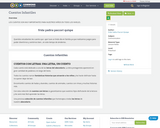
LOS CUENTOS SON MUY IMPORTANTES PARA NUESTROS NIÑOS EN TODO LOS NIVELES.
- Subject:
- Communication
- Material Type:
- Lecture Notes
- Author:
- Frida Yadira Paccori Quispe
- Date Added:
- 08/18/2020

LOS CUENTOS SON MUY IMPORTANTES PARA NUESTROS NIÑOS EN TODO LOS NIVELES.

This PPT introduces students to the concept of cultural heritage and then gets them to reflect on cultural heritage tourism via independent internet-based research and the development of an advertisement.

This module has been created by Dr. Carly Johnson, Chair of the Department of Music at Alabama State University, to supplement commercial textbooks available for college-level conducting courses. The culturally diverse images, musical scores, and videos featured in the module provide more inclusive content, representative of students from historically marginalized groups, and aid in deconstructing racial, ethnic, and gender biases often associated with the study of Western art music and with holding leadership positions in music. The module begins with reflective questioning, identifying and examining equity barriers in Western art music, and ends with pathway resources for underrepresented students to pursue additional study beyond the conclusion of the course. Included in this module are several activities and assessments that can be used in a variety of ways, suitable for both in-person teaching or for synchronous or asynchronous online instruction.
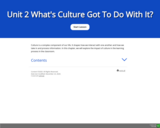
Unit 2 presentation on Hammon's culturally responsive teaching text, What's Culture Got to Do With It?
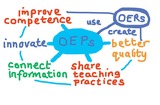
Prueba

Curso REA. Pareja de Hecho
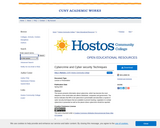
This lecture presents information about cybercrime, which has become the most ubiquitous crime world-wide and affects individuals, companies and government. The lecture indicates that 95% of all cybercrime is preventable and describes a myriad of cyber security techniques that are available to prevent hacking. Legislation to combat cybercrime is presented as well as the places where cybercrime should be reported.
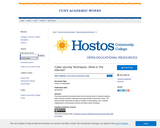
The lecture presents information about how the Internet works so students studying cyber security can better understand how cybercriminals commit their crimes. The lecture provides elemental concepts so students of all disciplines, from computer engineering to criminal justice and law can obtain a basic foundation.
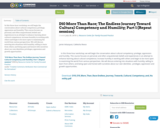
In this three-hour workshop; we will begin the conversation about cultural competency; privilege; oppression and humility. This course focuses on personal; and often unquestioned; beliefs and experiences in an attempt to enhance learning about cultural competence; increase humility in working with others and begin to be more open to examining the world from various perspectives. We will discuss entering into situations with humility; willing to learn from others; and being open and honest with ourselves about our own identities; privileges; oppression and growth opportunities.
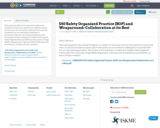
Team planning efforts have spread throughout our systems in recent years and are now required in many service areas. As new and innovative practices present themselves, we are sometimes challenged to incorporate them into our team planning processes. The purpose of this workshop is to define and integrate Safety Organized Practice (SOP) into the practice of high fidelity Wraparound. It will assist SOP and Wraparound practitioners, as well as all team members.
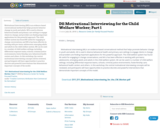
Motivational Interviewing (MI) is an evidence-based conversational method that helps promote behavior change in youth and adults. MI is used in diverse behavioral health and primary care settings to engage clients in change; and providers are finding important applications for this powerful approach. The child welfare system has found MI useful for engaging in change conversations; and MI is has been effective in working with pre-teens; adolescents; emerging adults and adults in the child welfare system. MI can be used in a number of child welfare settings; including differential response teams; schools; criminal justice environments; foster/kinship care; behavioral health centers and others. In this workshop; the central motivational interviewing concepts will be reviewed; and participants will have opportunities to practice discrete and powerful interventions that demonstrate important concepts of the model.
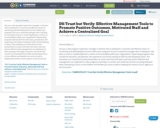
Are you a new program supervisor, manager or director who is looking for a concrete and effective means of monitoring and developing the services within your program? Are you a seasoned manager who is looking for new ideas on how to create/implement a culture of accountability within your organization? Supervising programs that include the education, perspectives, life experience and clinical training of staff can feel dizzying at times. This workshop is an introductory level presentation on some tools that have been used and proven effective that management can implement in their programs that helps to monitor and verify that services are being delivered while maintaining a focus on the children and families you serve as well as keeping the mission of your agency as the focal point.
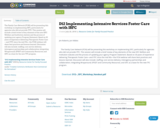
The Family Care Network (FCNI) will be presenting this workshop on implementing ISFC; particularly for agencies who did not provide ITFC. This session will include a brief review of key elements of the new ISFC Welfare and Institution statutes and the process of updating your agency Program Statement. Based on 30 years of experience delivering Therapeutic Foster Care—and ITFC since the mid 90s—the FCNI webinar will share best practices and lessons learned. Discussion will also include: staffing; core service delivery; interagency partnerships and collaboration; integrating Wraparound; EPSDT and Community Resources; and ISFC as a base for the new TFC program.
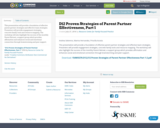
This presentation will provide a foundation of effective parent partner strategies and effective team strategies. Presenters will provide engagement strategies, concrete family tools and resource mapping. The workshop will also highlight the success of the monthly Parent Retreat, a support group which provides affirmation and enhances social and emotional connection through brainstorming and peer support.
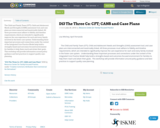
The Child and Family Team (CFT); Child and Adolescent Needs and Strengths (CANS) assessment tool; and case plans are interconnected and inextricably linked. All three processes must adhere to fidelity and timeline requirements; which are intended to significantly improve the care experience for each and every family involved in the foster care system. Understanding these important processes and connections under the context of the Integrated Core Practice Model help build a strengths-based and outcomes-focused environment for families to help them reach and attain their goals. This workshop will provide information around policy guidance and best practices to support quality case-planning.
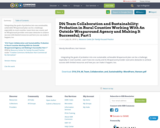
Integrating the goals of probation into one sustainable; achievable Wraparound plan can be a challenge; especially in rural counties. Learn how one county and its Wraparound provider overcame obstacles to achieve success with limited resources and how you can make it happen; too.
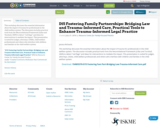
This workshop discusses the essential information about the impact of trauma for professionals in the child welfare system. The discussion includes practical tools from the Neurorelational Framework (Lillas and Turnbull, 2009) to detect “red flags” and ideas for interventions to mediate the impact. This presentation is suited for judges, attorneys, CASAs, child welfare professionals and others who interface with children and families in the child welfare system.
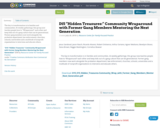
The key to transformation is in families and communities. At weekly gatherings; this group now teaches people how to “Wraparound” each other and keep kids out of a gang culture that can be generational. Former gang members now work alongside the probation department; law enforcement; churches; schools; universities and a multitude of nonprofit organizations to intervene and educate others.
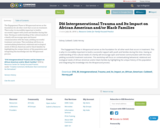
The Engagement Phase in Wraparound serves as the foundation for all other work that occurs in treatment. This is why it is incredibly important to build a successful rapport with youth and families during this time. Having an understanding of the cultural needs of a family will encourage open and honest communication with the team; yielding successful treatment outcomes. This workshop will focus on contextualizing behavioral; relational and ecological needs of African American and/or black families by highlighting the unique history of this population and integrating this knowledge into the Wraparound process.
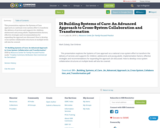
This presentation explores the Systems of Care approach as a national cross-system effort to transform the delivery of services and supports for children; adolescents and young adults. Implementation factors; effective strategies and recommendations for expanding the approach are discussed. How to develop cross-system collaborative structures at multiple levels will also be covered.